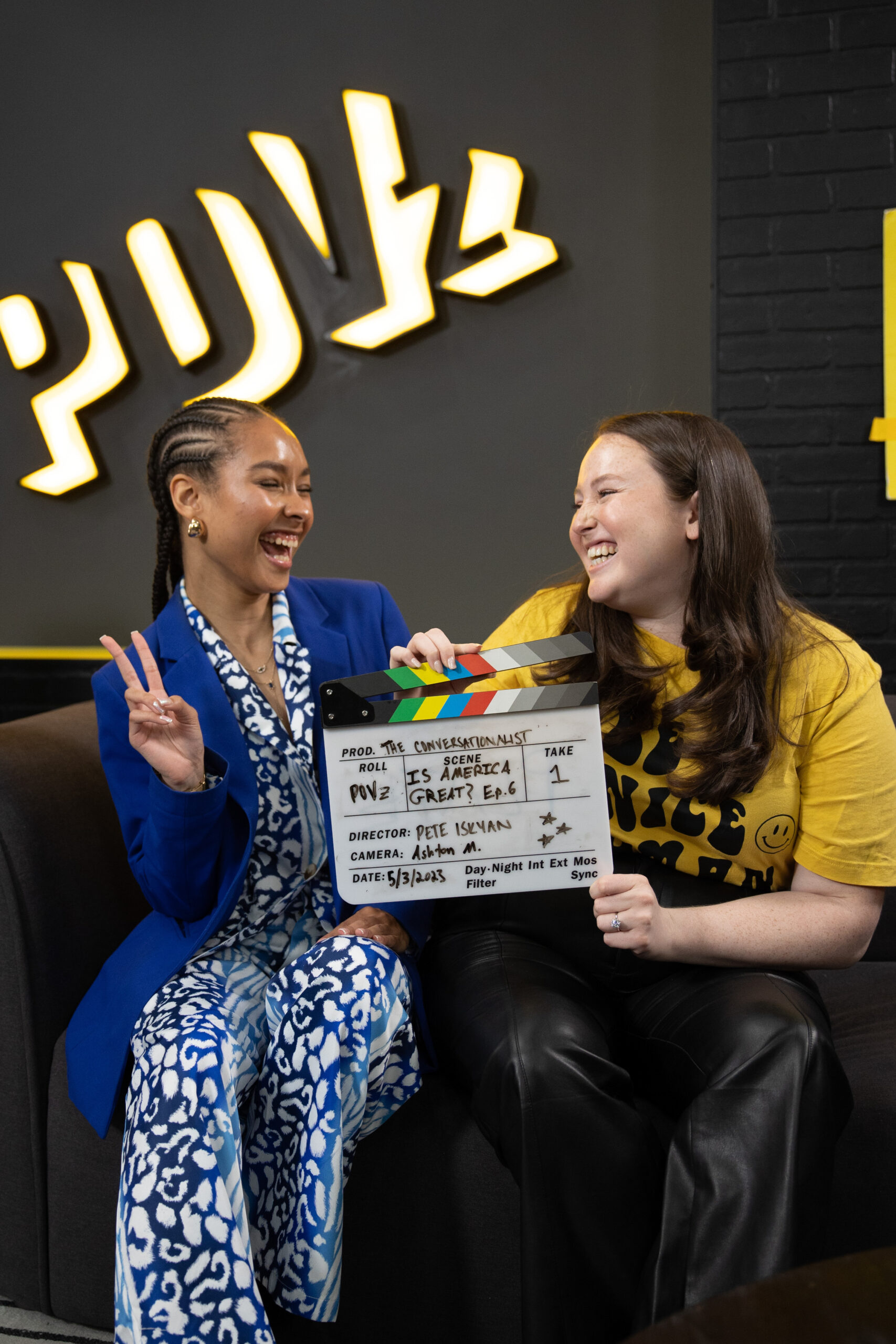Armed with a steadfast passion for dialogue, Sophie Beren founded a non-partisan educational platform to bring people together, across differences, through meaningful human connection. We spoke to the self-proclaimed Gen Z ‘unifier’ about what this involves.
When it comes to difficult conversations, most of us are inclined to avoid them. Engaging in discussions with those who have varying opinions can be a powerful thing, however, as long as they’re approached with respect.
Self-proclaimed Gen Z ‘unifier,’ Sophie Beren, has this down to a T, channelling her innate talent for fostering meaningful human connection through The Conversationalist, which she founded in 2019 to address the rampant polarisation that exists in our world today.
With a community of more than 150,000 young people, the non-partisan educational platform is committed to breaking echo chambers by encouraging us to ‘get comfortable with the uncomfortable’ and find common ground.
We sat down with Sophie to understand how she got here, what this work involves, and why it’s so important to Gen Z.
‘I realised as a kid that I wanted to make a difference but didn’t know how’ says Sophie.

Born and raised in Wichita, Kansas – and the only Jewish student in her grade throughout K-12 education – she explains that feeling like an outsider during childhood dampened her early desire to bring about change.
‘Being the only one meant constantly being singled out and because of that, I began to feel ashamed of who I was,’ she says.
‘I wanted to do big things, but I felt as though I needed someone else’s permission to use my voice.’
Following the yellow brick road (as Sophie puts it) to the University of Pennsylvania, she found herself in a starkly different environment, one where she was surrounded by Jewish students in all aspects of her college life. Ironically, this didn’t instigate the sense of belonging that Sophie assumed it would.
Witnessing her peers stick firmly to their identity groups, it became clear that she had ‘taken for granted the experience of learning who she was through the exploration of others’ differences’ back home.
It was this ‘epiphany’ that prompted Sophie to launch her first venture, TableTalk, a conversation club which evolved into a multi-campus movement and 501(c)3 non-profit organisation.
After spreading TableTalk to 80 plus schools, and around the time of the 2016 US Presidential election, she realised something bigger: that ‘it wasn’t surrounding ourselves with people like us that was the only problem, it was the lack of dialogue between people with different points of view.’
Putting pen to paper and calling on Gen Z to lead the charge in demonstrating that we can learn to coexist with the ‘other side,’ this article published in the Huffington Post and brought forward by TableTalk would be the foundation for The Conversationalist.
‘The minute you recognise that the rest of the world doesn’t think like you, that’s when you grow,’ wrote Sophie.
Over half a decade later and she’s still promoting that same message, only to a significantly larger audience and with a more developed ethos that’s been shaped by everyone she’s met along the way.
View this post on Instagram
‘We cover everything from politics to pop culture – whatever’s top of mind for Gen Z,’ says Sophie of The Conversationalist’s focus.
But how to maintain our interest in examining these subject matters amid compassion fatigue, whereby the ceaseless flow of negative news recounting the appalling events taking place across the globe is leaving many of us desensitised and reluctant to dive in?
‘Restoring the magic of human connection involves realising that we’re not complicit in the realities that these platforms have presented to us,’ answers Sophie.
‘With algorithms that spotlight divisive content and push us further into echo chambers, they have no incentive to stop us doom-scrolling, so it’s on us to reclaim our agency.’
Providing us with a ‘bridge’ to reclaiming that agency is exactly what The Conversationalist’s talk show POVz – which centres Gen Zers from all backgrounds and the issues most pertinent to them – strives to do, to remind us that democratised discourse on (and offline) is absolutely possible.

‘Our platform is an anti-algorithm echo-chamber-breaking destination that will expose you to contrasting perspectives, make you re-evaluate your relationship with your environment, and hopefully help you see that stepping outside of our bubbles is what will ultimately bring us closer together,’ says Sophie.
‘You don’t need to forego your beliefs or compromise your values; you just need to really listen to others because doing so will allow you to grow in turn.’
Expanding on how this translates into IRL action, she asserts that The Conversationalist’s role in this space is to be a ‘vehicle’ for unification that will then be a catalyst for external progress.























